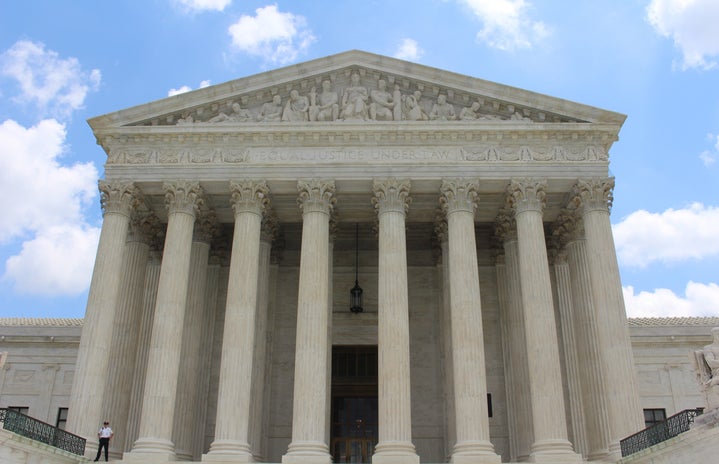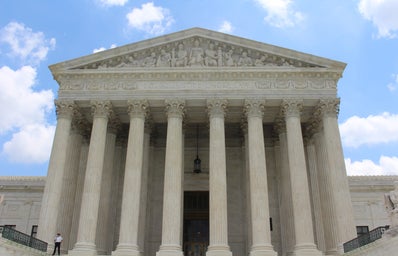With a 50-48 vote, Brett Kavanaugh’s Supreme Court seat was confirmed on October 6, 2018. Despite allegations of sexual assault made against him- something that in any ordinary job would be a huge red flag- and despite a lack of thorough investigation by the FBI; Kavanaugh now holds a seat in one of the most powerful governmental organizations. Here’s how that may change the future of our country.
1. The Supreme Court will be skewed in an extremely conservative direction.
Kavanaugh holds conservative views in alliance with right wingers and Donald Trump himself. Thus, the SCOTUS* is likely to flip not only from left to right, but from liberal to authoritarian. Furthermore, conservatives and Trump now essentially control all three branches of government. Many argued that the SCOTUS was the last remaining hope in a country being strangled by the ideology of Trump’s administration; however, it is evident now that the conservative partisanship within it is all but guaranteed to swing the votes on important issues such as immigration, female reproductive care and voting in favor of the right. It is likely that there will be a 5-4 conservative majority in the court.
2. The outcomes of upcoming midterm elections will be VERY important.
Just a month away now, the 2018 midterm elections are quickly approaching. They are always important, but with the SCOTUS now skewed towards the right, this year’s midterms hold a special importance. Not only is the court skewed after Kavanaugh’s confirmation, but Republicans also control both the House and the Senate. However, Democratic victories in midterm elections would allow for conservative political power to be limited. This is vital, especially if the SCOTUS attempts to reverse Roe v. Wade and can also have a large impact on education, taxes and labor rights. So VOTE.
Related: #OneVoteMatters: The Value of a Vote in America
3. Female reproductive care, including Roe v. Wade, is up in the air.
Kavanaugh has been very vague and contradictory about his views on female reproductive care, specifically Roe v. Wade. When pressed in the Senate hearing by Senator Dianne Feinstein, he refused to give a clear answer regarding whether or not nullifying Roe v. Wade will be a goal of his. If Kavanaugh chooses to be anti-Roe, he makes that bloc of the court the majority voting bloc. He is on record as applauding those who have challenged abortion rights in the past and during his hearings he referred to birth control as “abortion-inducing drugs.” For women across the nation, this is terrifying. Decisions being made about our bodies and reproductive care by a man who don’t even understand what birth control does and who has been accused of sexual assault is simply appalling.
Related: I Believe Dr. Ford
4. Gun control will be off the table for a while.
Kavanaugh is a strong supporter of the Second Amendment and according to UCLA law professor Adam Winkler, “…he thinks there is little room for constitutionally permissible gun control.” Furthermore, Kavanaugh believes that it is not the job of judges to consider public safety when deciding whether a gun law is constitutional. Rather, he believes that since they have not been banned up to this point then it must not be constitutional to ban now. This is extremely concerning in that the Constitution must be evaluated using a twenty-first century lens, especially when dealing with the Second Amendment. Kavanaugh’s vote may have the ability to tip the majority conservative court against gun regulation. This is immensely concerning for the safety of America and frankly is a blatant ignorance of the desperate voices crying out for change after the death of so many by gun violence.
5. Separation of church and state may be called into question.
During his hearing, Kavanaugh suggested that he disagreed with the separation of church and state, specifically in public schools. In fact, he said he would vote to diminish the power of separation of church and state within public schools. Kavanaugh worked on a case in 2000, Santa Fe Independent School District v. Doe, in which the court ruled that the school district could not allow students to use the loudspeaker to deliver prayers before football games. In Kavanaugh’s friend-of-the-court brief, he argued that since the school had created a platform for student speech it was constitutionally required to allow students to essentially impose prayer on their peers. Students currently do have religious rights in schools, but it is expected that Kavanaugh will attempt to increase religious practices in public schools, thus decreasing the power of church and state. It is possible that his disbelief in the separation of church and state could also translate to other issues outside of education and may overturn past rulings.
6. Future decisions are uncertain.
Based purely on the vagueness of Kavanaugh’s answers in his hearing, as well as his overall manipulative personality; a lot is left unknown. Kavanaugh denied to clearly answer many questions presented to him during his hearing, which is allowed in the chance that a future case may relate to a topic; however, this means that he is a loose cannon for future decisions. We can only speculate at what he may agree or disagree with, which leaves a lot open to the frightening unknown.
Kavanaugh’s confirmation signifies the beginning of a potentially dark period for the SCOTUS and the country; however, that does not mean that this is the end. We still have the chance to enact change through protest and through voting. We still have a voice.



